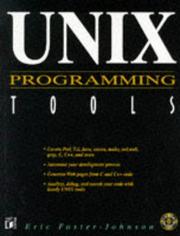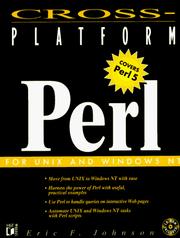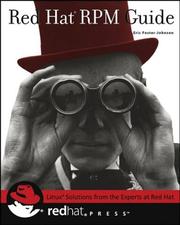| Listing 1 - 10 of 78 | << page >> |
Sort by
|
Book
ISBN: 9400738331 9401781559 940073834X 9786613704672 1280794283 Year: 2012 Publisher: Dordrecht : Springer,
Abstract | Keywords | Export | Availability | Bookmark
 Loading...
Loading...Choose an application
- Reference Manager
- EndNote
- RefWorks (Direct export to RefWorks)
It’s the new rock and roll. It’s the new black. Sustainability is trendy, and not just among hipsters and pop stars. The uncool chemical sector helped pioneer it, and today, companies inside and outside the sector have embraced it. But what have they embraced? Surely not the Brundtland definition of meeting “the needs of the present without compromising the ability of future generations to meet their own needs.” Sustainability describes a change in the chemical industry’s approach to the external world: to regulators, to greens, to neighbors, to investors and to the general public. Displacing the adversarialism of the 1970s-80s, sustainability is a new approach to social/political conflict, and an attempt to rebuild the industry’s long-suffering public image. In practice, it consists of: A ‘stakeholder’ approach to communications and external relations A rebranding of regulatory compliance and risk management, with the emphasis on their benefits to stakeholders Recognition (and even celebration) of the opportunities, not just the costs, of environmental and social protection The core of this book is a survey of the world’s 29 largest chemical companies: how they put sustainability into action (six of the 29 do not), and the six ‘sustainability brands’ they have created. It begins with a history of stakeholders conflict, before looking at various definitions of sustainability – by academics, by the public and by investors. After the survey and analysis, the book covers sustainability and ‘greenwash’ plus the ROI of sustainability, and it gives five recommendations.
Chemical industry -- Environmental aspects. --- Chemical industry. --- Environmental chemistry. --- Environmental sciences. --- Earth & Environmental Sciences --- Chemical & Materials Engineering --- Engineering & Applied Sciences --- Chemical Engineering --- Environmental Sciences --- Chemistry --- Chemical industry --- Research. --- Environmental aspects. --- Chemistry, Environmental --- Chemical research --- Environment. --- Energy systems. --- Leadership. --- Chemical engineering. --- Communication. --- Environmental Chemistry. --- Communication Studies. --- Business Strategy/Leadership. --- Energy Systems. --- Industrial Chemistry/Chemical Engineering. --- Ecology --- Communication, Primitive --- Mass communication --- Sociology --- Chemistry, Industrial --- Engineering, Chemical --- Industrial chemistry --- Engineering --- Chemistry, Technical --- Metallurgy --- Ability --- Command of troops --- Followership
Book
Year: 1993 Publisher: Amsterdam London New York Oxford Paris Shannon Tokyo
Abstract | Keywords | Export | Availability | Bookmark
 Loading...
Loading...Choose an application
- Reference Manager
- EndNote
- RefWorks (Direct export to RefWorks)
series --- United States --- environmental impact
Digital
ISBN: 9789400738348 Year: 2012 Publisher: Dordrecht Springer Netherlands
Abstract | Keywords | Export | Availability | Bookmark
 Loading...
Loading...Choose an application
- Reference Manager
- EndNote
- RefWorks (Direct export to RefWorks)

ISBN: 1558514821 Year: 1997 Publisher: New York M&T Books
Abstract | Keywords | Export | Availability | Bookmark
 Loading...
Loading...Choose an application
- Reference Manager
- EndNote
- RefWorks (Direct export to RefWorks)
MET Methods & Techniques --- UNIX --- computer science --- methods

ISBN: 9780521470179 9780511572524 9780521527002 052147017X 0521527007 0511572522 Year: 1995 Publisher: Cambridge Cambridge University Press
Abstract | Keywords | Export | Availability | Bookmark
 Loading...
Loading...Choose an application
- Reference Manager
- EndNote
- RefWorks (Direct export to RefWorks)
This 1995 book contributes to both modern German history and to the sociological understanding of crime in modern industrial and urban societies. Its central argument is that cities, in themselves, do not cause crime. It focuses on the problems of crime and criminal justice during Germany's period of most rapid urban and industrial growth - a period when Germany also rose to world power status. From 1871 to 1914, German cities, despite massive growth, socialist agitation and non-ethnic German immigration, were not particularly infested with crime. Yet the conservative political and religious elites constantly railed against the immoral nature of the city and the German governmental authorities, police, and court officials often overreacted against city populations. In so doing, they helped to set Germany on a dangerous authoritarian course.
Crime --- Crime prevention --- Criminal justice, Administration of --- Urbanization --- History --- Germany --- 19th century --- Criminal justice [Administration of ] --- Crime - Germany - History - 19th century. --- Crime prevention - Germany - History - 19th century. --- Criminal justice, Administration of - Germany - History - 19th century. --- Urbanization - Germany - History - 19th century. --- Cities and towns, Movement to --- Urban development --- Urban systems --- Cities and towns --- Social history --- Sociology, Rural --- Sociology, Urban --- Urban policy --- Rural-urban migration --- Administration of criminal justice --- Justice, Administration of --- Criminal law --- Criminals --- City crime --- Crime and criminals --- Crimes --- Delinquency --- Felonies --- Misdemeanors --- Urban crime --- Social problems --- Criminology --- Transgression (Ethics) --- Prevention of crime --- Public safety --- Law and legislation --- Social aspects --- Prevention --- Government policy --- Arts and Humanities --- Crime - Germany - History - 19th century --- Crime prevention - Germany - History - 19th century --- Criminal justice, Administration of - Germany - History - 19th century --- Urbanization - Germany - History - 19th century
Book
ISBN: 1785888161 9781785888168 9781785888618 1785888617 Year: 2016 Publisher: Birmingham : Packt Publishing,
Abstract | Keywords | Export | Availability | Bookmark
 Loading...
Loading...Choose an application
- Reference Manager
- EndNote
- RefWorks (Direct export to RefWorks)
Extend the power of your infrastructure and applications with Salt modules About This Book Get the most up-to-date practical resource on writing new Salt modules and extending Salt Learn through use cases and encounter both commonly-used modules as well as advanced ones Effectively troubleshoot problems and hiccups encountered while building and putting modules to work Who This Book Is For This book is for both new and existing Salt developers who are looking to build and write new Salt modules. Some prior Python development experience is expected. What You Will Learn Understand the working of Salt's Loader system Write several of the most common types of Salt modules Interact between different kinds of modules and build new ones Submit open source modules upstream to the Salt project Make Salt interact with third-party services and applications In Detail Salt already ships with a very powerful set of tools, but that doesn't mean that they all suit your needs perfectly. By adding your own modules and enhancing existing ones, you can bring the functionality that you need to increase your productivity. Extending SaltStack follows a tutorial-based approach to explain different types of modules, from fundamentals to complete and full-functioning modules. Starting with the Loader system that drives Salt, this book will guide you through the most common types of modules. First you will learn how to write execution modules. Then you will extend the configuration using the grain, pillar, and SDB modules. Next up will be state modules and then the renderers that can be used with them. This will be followed with returner and output modules, which increase your options to manage return data. After that, there will be modules for external file servers, clouds, beacons, and finally external authentication and wheel modules to manage the master. With this guide in hand, you will be prepared to create, troubleshoot, and manage the most common types of Salt modules and take your infrastructure to new heights! Style and approach This book follows a step-by-step tutorial-based approach explaining the different types of modules, from fundamentals to complete and full-functioning modules.
Open source software. --- Free software (Open source software) --- Open code software --- Opensource software --- Computer software

ISBN: 155851483X 9781558514836 Year: 1996 Publisher: New York M&T Books
Abstract | Keywords | Export | Availability | Bookmark
 Loading...
Loading...Choose an application
- Reference Manager
- EndNote
- RefWorks (Direct export to RefWorks)
Perl (Computer program language) --- Web servers --- Cross-platform software development --- Pathologically Eclectic Rubbish Lister (Computer program language) --- Practical Extraction and Report Language (Computer program language) --- Scripting languages (Computer science) --- Computer software --- Servers, Web --- Webservers --- World Wide Web servers --- WWW servers --- Client/server computing --- Cookies (Computer science) --- Web hosting --- Development --- Equipment and supplies

ISBN: 9780719555817 0719555817 Year: 1999 Publisher: London: Murray,
Abstract | Keywords | Export | Availability | Bookmark
 Loading...
Loading...Choose an application
- Reference Manager
- EndNote
- RefWorks (Direct export to RefWorks)
Jews --- National socialism --- Holocaust, Jewish (1939-1945)

ISBN: 9780764549656 0764549650 Year: 2003 Publisher: Indianapolis, Ind.: Wiley,
Abstract | Keywords | Export | Availability | Bookmark
 Loading...
Loading...Choose an application
- Reference Manager
- EndNote
- RefWorks (Direct export to RefWorks)
Book
Year: 1963 Publisher: Englewood Cliffs (N.J.) : Prentice-Hall,
Abstract | Keywords | Export | Availability | Bookmark
 Loading...
Loading...Choose an application
- Reference Manager
- EndNote
- RefWorks (Direct export to RefWorks)
| Listing 1 - 10 of 78 | << page >> |
Sort by
|

 Search
Search Feedback
Feedback About UniCat
About UniCat  Help
Help News
News